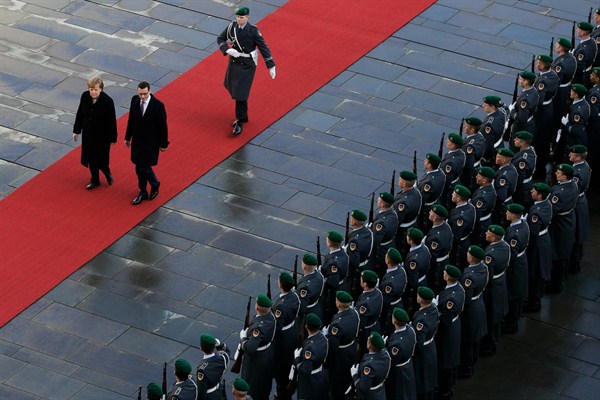On Feb. 16, German Chancellor Angela Merkel and Polish Prime Minister Mateusz Morawiecki met in Berlin for what appeared to be a tense discussion aimed at mending their countries’ frayed bilateral ties. Merkel acknowledged that the two leaders “have different points of view” on a number of issues, including the resettlement of refugees in Europe. In an email interview, Piotr Buras, the head of the European Council on Foreign Relations Warsaw office, discusses the points of friction between Berlin and Warsaw and where their interests still overlap.
WPR: Where do relations between Germany and Poland currently stand, and what are the main points of friction between them?
Piotr Buras: Relations between Germany and Poland are currently in a state of malaise. The source of this is a crisis of trust rooted in the major reorientation of Polish foreign policy regarding the European Union, which began after Poland’s populist, right-wing Law and Justice party won the October 2015 elections. The party’s leader, Jaroslaw Kaczynski, promised that Polish diplomacy would “rise up from its knees,” defend Poland’s sovereignty and stand against the EU’s ambitions of greater federalism and centralization. Law and Justice had always criticized the close cooperation between Warsaw and Berlin under the previous liberal government, which it depicted as Polish “submission.” While in power, Law and Justice shifted the country’s key alliance within the EU away from Berlin and toward London, which it saw as sharing a similar vision of the bloc. Warsaw has also tried to strengthen regional cooperation in Central and Eastern Europe to counterbalance Germany.

